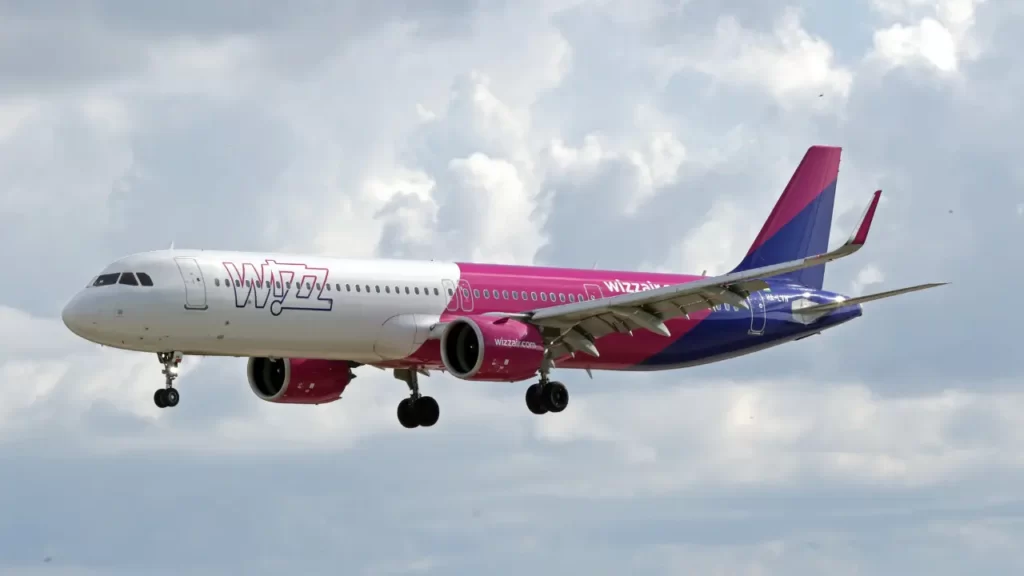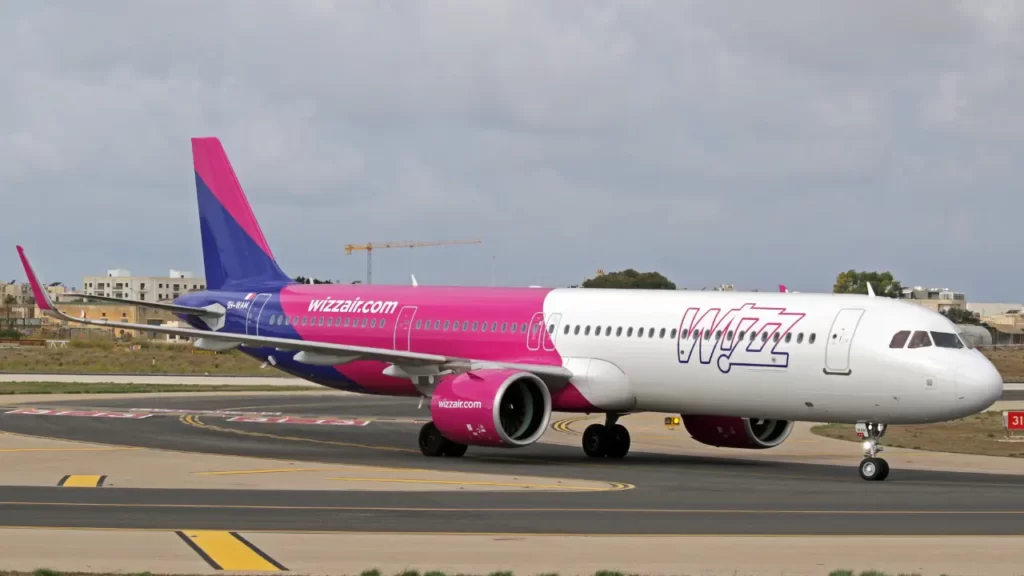
Wizz Air Overview
Wizz Air is a Hungarian low-cost airline known for its focus on providing affordable air travel primarily within Europe. Founded in 2003, the airline has grown rapidly, becoming one of the largest low-cost carriers in the region. Here is an overview of Wizz Air:
Table of Contents
Foundation and Early Years (2003)
- Wizz Air was founded in September 2003 by József Váradi, a Hungarian businessman. The airline’s first flight took place in May 2004 from Katowice, Poland, to Luton, United Kingdom.
Hub and Base Structure
- Wizz Air operates from its main base at Budapest Ferenc Liszt International Airport (BUD) in Hungary. Additionally, the airline has established multiple bases across Europe, including locations in Poland, Romania, Ukraine, and others, to facilitate its extensive route network.
Fleet Composition
- Wizz Air operates a fleet composed primarily of Airbus A320 family aircraft, including A320 and A321 models. The airline has focused on maintaining a standardized fleet to optimize operational efficiency and reduce costs.
Low-Cost Model
- Wizz Air operates on a low-cost carrier (LCC) model, emphasizing cost efficiency and offering competitive fares. The airline often serves secondary airports to reduce fees and attract budget-conscious travelers.
Extensive Route Network
- Wizz Air has built an extensive route network, connecting cities and airports across Europe. The airline’s network includes both major cities and popular tourist destinations, catering to a diverse range of passengers.
Eastern and Central European Focus:
- Wizz Air has a strong focus on serving Eastern and Central European markets. The airline has played a significant role in improving air connectivity within the region, connecting cities that were previously underserved.
Ultra-Low-Cost Services
- Wizz Air offers ultra-low-cost services, allowing passengers to purchase additional services and amenities based on their preferences. This includes options such as priority boarding, seat selection, and in-flight meals.
WIZZ Discount Club
- The WIZZ Discount Club is a subscription-based program that provides members with additional discounts on fares and other services. Members can benefit from reduced prices on flights and other perks.
Innovative Services
- Wizz Air has introduced various innovative services to enhance the travel experience. This includes features like the WIZZ mobile app, which allows passengers to book flights, manage bookings, and access other travel-related information.
Expansion and Growth
- Wizz Air has experienced significant growth since its inception, consistently expanding its route network and fleet. The airline has capitalized on the demand for low-cost air travel and entered new markets across Europe.
Environmental Initiatives
- Wizz Air has expressed commitment to environmental sustainability. The airline has introduced initiatives to improve fuel efficiency, reduce emissions, and invest in newer, more fuel-efficient aircraft.
Challenges and Resilience
- Like many airlines, Wizz Air has faced challenges, including economic downturns and the impact of global events. The airline has demonstrated resilience and adaptability, adjusting its strategies to navigate industry dynamics.
Wizz Air History

Founding and Inaugural Flight (2003):
- Wizz Air was founded in September 2003 by József Váradi, a Hungarian entrepreneur. The airline’s inaugural flight took place on May 19, 2004, from Katowice, Poland, to Luton, United Kingdom.
Low-Cost Model and Market Focus
- From its inception, Wizz Air adopted a low-cost carrier (LCC) model, aiming to provide affordable air travel primarily within Europe. The airline focused on serving markets in Eastern and Central Europe, connecting cities and airports that were underserved by other carriers.
Budapest Ferenc Liszt International Airport Hub
- Wizz Air established Budapest Ferenc Liszt International Airport (BUD) in Hungary as its main hub. The strategic location allowed the airline to serve a wide range of destinations across Europe.
Rapid Expansion and New Bases
- Wizz Air experienced rapid expansion, quickly adding new routes and bases. The airline established bases in various countries, including Poland, Romania, Bulgaria, Ukraine, and the United Kingdom, creating a diverse network of destinations.
Airbus A320 Family Fleet
- Wizz Air built a fleet predominantly composed of Airbus A320 family aircraft, including A320 and A321 models. Standardizing the fleet type helped the airline optimize operational efficiency and reduce maintenance costs.
Ultra-Low-Cost Services:
- Wizz Air differentiated itself by offering ultra-low-cost services, allowing passengers to customize their travel experience by selecting and paying for additional services based on their preferences. This included options like priority boarding and seat selection.
WIZZ Discount Club
- Wizz Air introduced the WIZZ Discount Club, a subscription-based program that provides members with exclusive discounts on fares, priority access, and other benefits. The club aimed to attract frequent and budget-conscious travelers.
Mobile App and Digital Services
- Wizz Air embraced digital innovation, launching the WIZZ mobile app. The app allowed passengers to conveniently book flights, manage bookings, check-in online, and access essential travel information.
Strategic Market Expansion
- Wizz Air strategically expanded its market presence by entering new markets and connecting cities that were not traditionally served by low-cost carriers. The airline capitalized on the demand for affordable air travel in both established and emerging markets.
Environmental Initiatives
- Wizz Air has expressed a commitment to environmental sustainability. The airline invested in modern and fuel-efficient aircraft to reduce its carbon footprint. Initiatives to enhance fuel efficiency and explore sustainable aviation fuels were also considered.
Financial Performance and IPO
- Wizz Air demonstrated robust financial performance, reporting profitability and positive growth. In 2015, the airline went public with its initial public offering (IPO) on the London Stock Exchange.
Resilience and Adaptation
Wizz Air faced challenges in the aviation industry, including economic downturns and the impact of global events. The airline demonstrated resilience by adapting its strategies, exploring new opportunities, and maintaining a focus on cost efficiency.
